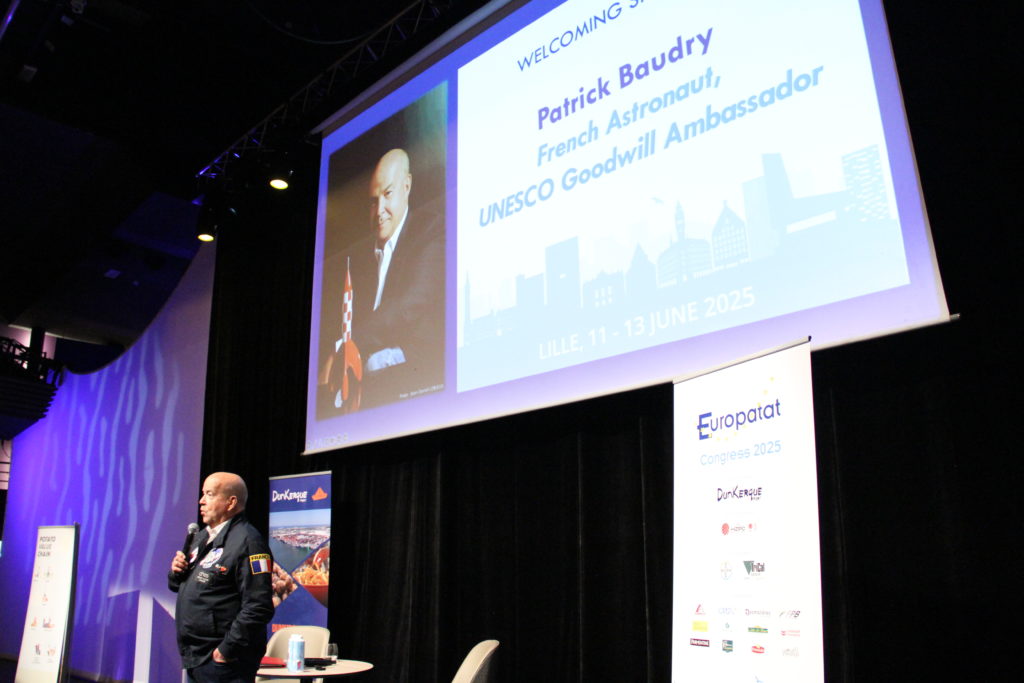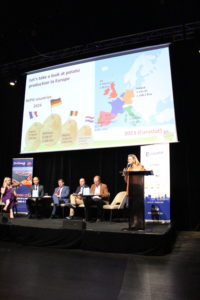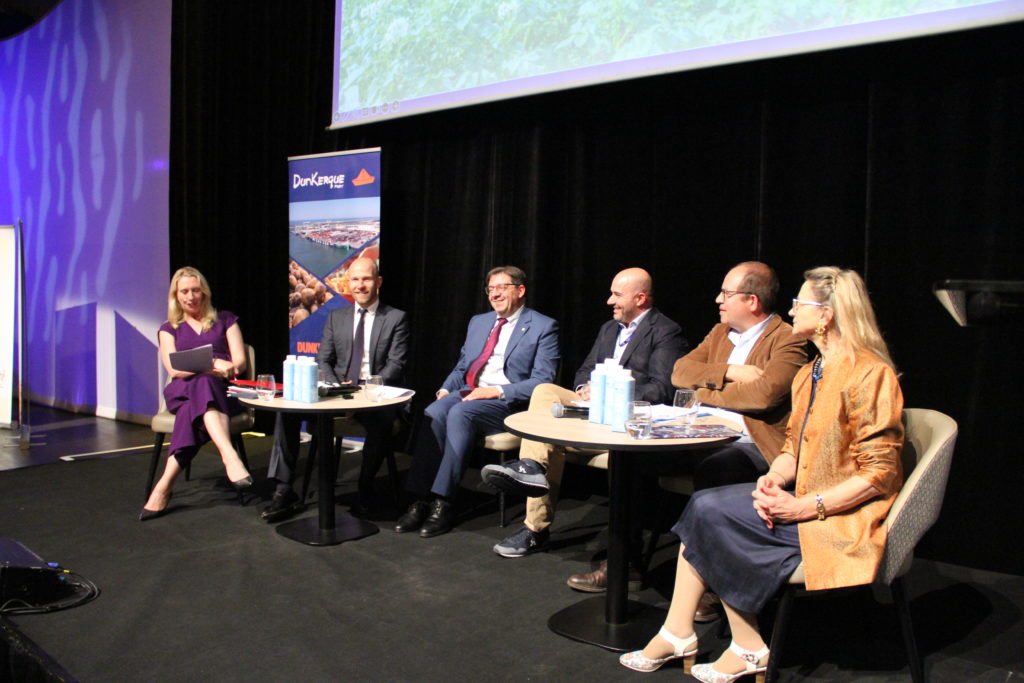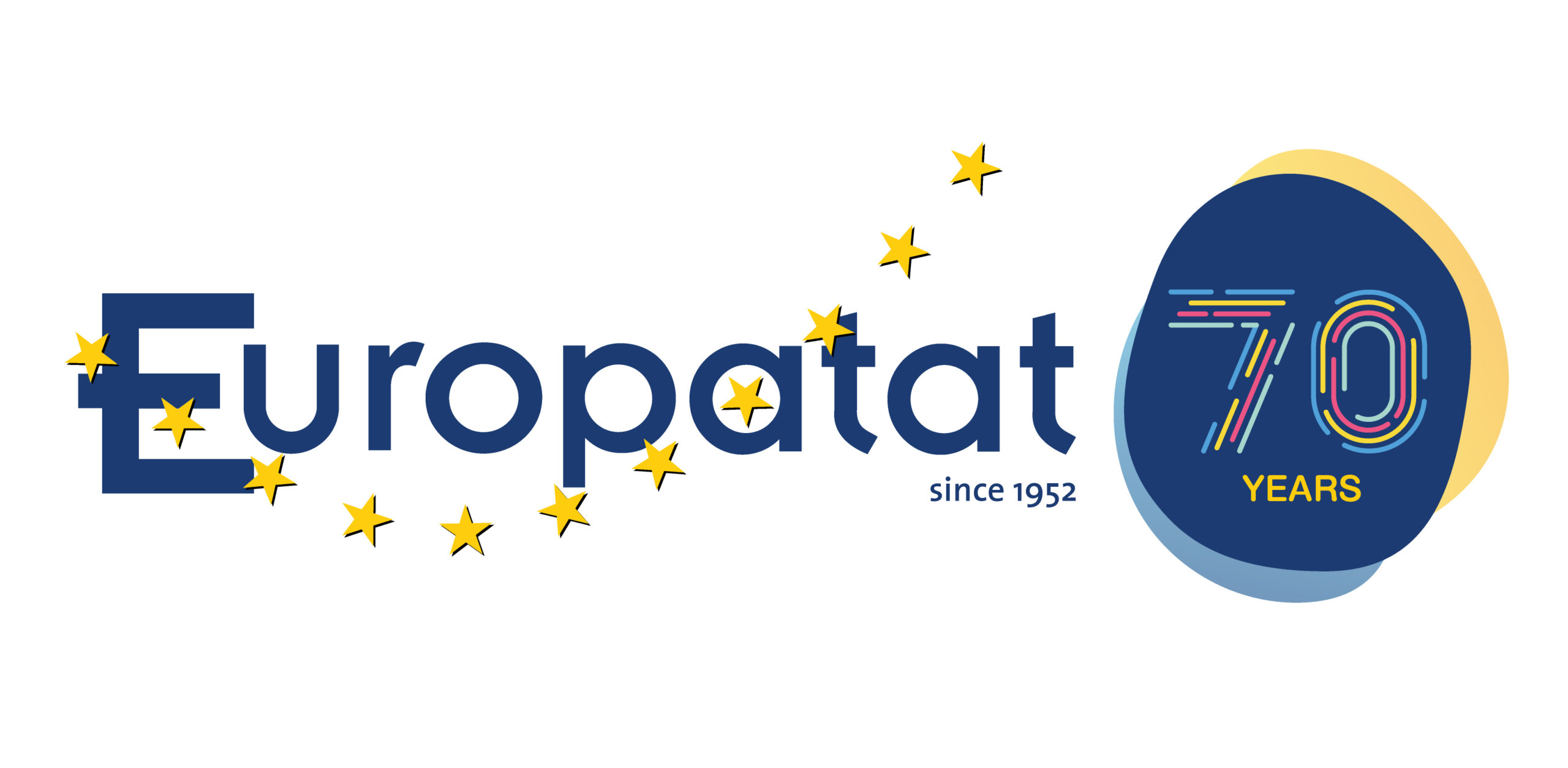For the second time, France hosted the Europatat Congress, the annual gathering of Europe’s potato trading community. Organised jointly by Europatat and Fedepom, the event took place in Lille from 11 to 13 June 2025.
Opening the Congress, Tigran Richter, President of Europatat, and Dominique Père, President of Fedepom, underlined France’s key role in the European potato sector. This leadership, however, is evolving in an increasingly volatile and uncertain market environment. The Congress offered an opportunity for participants to step back, exchange knowledge, and reflect on the future of the sector.
To set the tone with inspiration, French astronaut Patrick Baudry was invited to share his extraordinary experience. Drawing a bold parallel between the challenges faced by the potato sector and the great human adventures, Baudry reminded attendees of the importance of perseverance, courage, and keeping a clear course forward.
Baudry, the second French person to travel into space, shared his personal journey with emotion and humour. “All my life, I tried to fulfil a dream,” he said, recalling how he moved from being a fighter pilot to a space explorer. Despite several setbacks (including the cancellation of his first planned mission) his determination paid off. He eventually flew aboard NASA’s Space Shuttle Discovery, an experience he shared with the audience through rare footage, including a clandestine recording of the launch. His inspiring story energised participants and perfectly set the stage for the Congress.

The French potato market and its impact on Europe
The central panel of this year’s Congress was dedicated to exploring the French potato market and its influence across Europe. Florence Rossillion, Director of CNIPT, provided a comprehensive overview of the French potato sector, backed by robust data covering all segments: seed potatoes, ware potatoes (both for fresh consumption and processing), starch potatoes, exports, and consumption trends.
 She highlighted France’s strategic position as the second-largest producer in the European Union and the world’s leading exporter of fresh potatoes. Belgium is the main destination for processing, while Spain, Italy, and Portugal are key markets for fresh potatoes. Rossillion also discussed the evolution of consumption patterns, noting the steady decline in fresh potato consumption across Europe in favour of processed products, reflecting changing lifestyles and culinary habits. To address this trend, she pointed to the importance of communication initiatives co-financed by the European Union and other partners, aimed at promoting potatoes’ many strengths: healthy, natural, local, and affordable.
She highlighted France’s strategic position as the second-largest producer in the European Union and the world’s leading exporter of fresh potatoes. Belgium is the main destination for processing, while Spain, Italy, and Portugal are key markets for fresh potatoes. Rossillion also discussed the evolution of consumption patterns, noting the steady decline in fresh potato consumption across Europe in favour of processed products, reflecting changing lifestyles and culinary habits. To address this trend, she pointed to the importance of communication initiatives co-financed by the European Union and other partners, aimed at promoting potatoes’ many strengths: healthy, natural, local, and affordable.
“The market is shaped by consumption,” stressed Florimond Desprez, Director of the Potato Division at Florimond Desprez. “We’ve adapted the retail offering to match consumer expectations—this is fundamental.” He emphasised the vital role of breeding new potato varieties that meet evolving market demands, adding: “This creates added value throughout the chain. It’s a truly collaborative effort.”
Francisco Moya, Director of the Vitalis Group, echoed this view, highlighting that the large share of French potatoes destined for export compels businesses to adopt a global vision: “You have to think beyond borders.” From the Spanish perspective, Alain Betancourt, Commercial Director of Patatas Meléndez, Spain’s leading fresh potato company, reiterated the importance of consumer focus: “You must always consider consumer needs first, even before thinking about production. In Spain, the demand is clear: consumers want high-quality, tasty potatoes all year round.”
Philippe Quennemet, President of GIPT, focused his remarks on the growing global demand for processed potatoes, particularly frozen fries. “More and more countries are increasing their consumption of fries,” he observed. “The real question is: who will supply these new markets?” He also warned that, for Europe to maintain and grow its exports of frozen products, the sector must remain competitive, not only against North America but also against emerging producers in India and China.
Another key concern raised during the Congress was the growing impact of climate change on potato production. “Research must help provide solutions to farmers,” underlined Florimond Desprez, pointing to the critical role of technological innovation. Florence Rossillion reinforced this point: “Innovation is essential. But we must strike a balance between adapting to climate change, maintaining good yields, and meeting consumer expectations. Research cannot be disconnected from market realities.”
Francisco Moya added that, while exports are vital, maintaining strong local and regional markets is equally important: “France exports 50% of its production, but balancing this with domestic demand is crucial.” Philippe Quennemet concluded with a strong reminder: “It’s vital to serve all markets according to their needs. Success depends on constant adjustment, and producers must stay closely aligned with their customers.”

A positive outlook, with vigilance
As the Congress concluded, the moderator invited each speaker to share their vision for the future of potatoes in Europe. All speakers expressed a cautiously optimistic outlook for this beloved product, while stressing the importance of staying alert to the many challenges ahead—whether economic, climatic, societal, or geopolitical.
This article was written by Florence Rossillion and Olivier Masbou and originally published in the Pomme de Terre Hebdo, and has been kindly provided by CNIPT.

